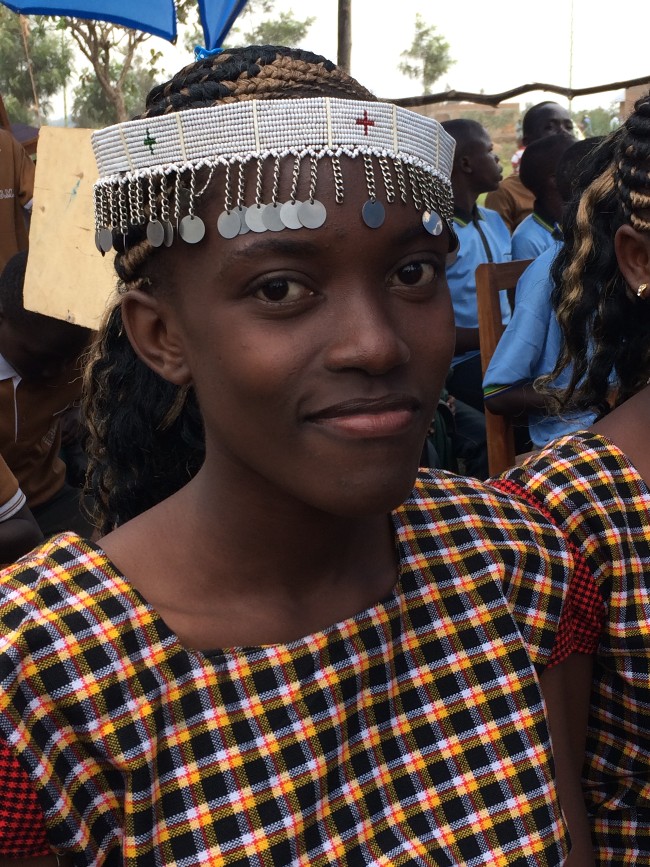Alternative Rites of Passage: What is their role in Female Genital Mutilation/Cutting abandonment?

Alternative Rites of Passage (ARP) are a popular strategy to encourage abandonment of FGM/C mainly in East Africa. Yet their effectiveness in eliminating or reducing FGM/C remains unclear. Two expert meetings have led to evidence-based recommendations for research, policy, and programmes on ARP.
About the project:
Female Genital Mutilation/Cutting (FGM/C) involves the total or partial removal of or other injury to the female genitalia for non-medical reasons (WHO 2018). The United Nations (UN) frames FGM/C as a human rights violation, health concern, and a form of gender discrimination.
Alternative Rites of Passage (ARP) are used by non-governmental organisations in their efforts to end FGM/C by mimicking the “traditional” initiation ritual but with the omission of the cut. ARP are especially popular in East Africa where FGM/C is often part of a ritual that initiates girls into womanhood and prepares them for marriage and childbearing.
Despite the growing popularity of ARP among NGOs, their effectiveness is contested. The ARP Open Dialogues (22 November 2021 and 8 September 2022) brought together researchers, development practitioners and policymakers to aggregate existing evidence on ARP and formulate recommendations for rigorous research, evidence-based policy, and effective programmes to end FGM/C.
Policy implications
Rigorous research and evaluation
• More rigorous research is needed to provide evidence for more effective programmes and policy.
• Research should be quantitative and qualitative, developed in close collaboration between researchers, community members, and development practitioners, and should include but not be limited to ARP’s effectiveness.
• NGOs running ARP need to carry out long-term monitoring and evaluation to test their efficacy. Monitoring and evaluation should be built into the intervention at its onset.
Sustainable, community-led, and context-appropriate ARP programmes
• ARP must be part of a sustained programme rather than one-off events.
• ARP should be community- rather than NGO-led. Ensuring that the ownership of initiation rituals remains in the hands of community members also resolves the issue of expensive and unsustainable “public graduation” ceremonies organised and funded by NGOs.
• ARP are only appropriate for communities in which FGM/C is part of an initiation ritual, and only relevant if the community wants to continue the ritual. They are less appropriate in communities that are moving away from the initiation ritual, for example towards medicalised FGM/C.
Evidence-based framework and guidelines
• International influencers should work with researchers and development practitioners to develop a framework and guidelines for effective programmes for the abandonment of FGM/C.
• Scale-up should only take place based on the findings from rigorous research.

Key findings
• ARP are popular among NGOs in East Africa. NGOs in West Africa are also considering using them. However, the evidence on their role in ending or reducing FGM/C prevalence is inconclusive (Droy et al. 2018). In addition, there is some confusion as to what ARP entails, given that different NGOs use ARP to refer to different programme models.
• Available evidence suggests that ARP might increase people’s knowledge of the risks of FGM/C and change their attitudes. So far, there is no reliable evidence on whether ARP can also reduce the prevalence of FGM/C (Massaquoi et al. 2021).
• ARP seem most successful in changing people’s attitudes when they are part of a sustained programme with a strong educational component and involve the whole community (Hughes 2018).
• ARP that ensure the ceremony remains in the hands of families and ex-circumcisers are more sustainable than one-off graduation spectacles funded by NGOs that risk attracting an audience for economic incentives rather than for FGM/C abandonment (Van Bavel 2021).
Further information
Droy, Laurence, Lotte Hughes, Mark Lamont, Peter Nguura, Damaris Parsitau, and Grace Wamue Ngare. 2018. “Alternative Rites of Passage in FGM/C Abandonment Campaigns in Africa: A Research Opportunity.” Working Paper. Leicester: University of Leicester. https://journals.le.ac.uk/ojs1/index.php/lias/article/view/2820
Hughes, Lotte. 2018. “Alternative Rites of Passage: Faith, Rights, and Performance in FGM/C Abandonment Campaigns in Kenya.” African Studies 77 (2): 274–92. https://doi.org/10.1080/00020184.2018.1452860.
Massaquoi, Lamin, Rachael Hongo, Miral Maarouf, and Paoloa Pileri. 2021. “A Systematic Review on the Effectiveness of Alternative Rites of Passage in Eliminating FGM: Preliminary Results From Evidence of Two Decades of Implementation by FGM Programs.” Nairobi: UNFPA-UNICEF, WHO, and Population Council Kenya. Unpublished.
Van Bavel, Hannelore. 2021. “The ‘Loita Rite of Passage’: An Alternative to the Alternative Rite of Passage?” SSM - Qualitative Research in Health, October, 100016. https://doi.org/10.1016/j.ssmqr.2021.100016.
Authors
Hannelore Van Bavel (University of Bristol); Lotte Hughes; Arunav Kaul; Katy Newell-Jones
Policy Briefing 122: December 2022
Alternative Rites of Passage: What is their role in FGM/C? (PDF, 844kB)
Contact the researchers
Arunav Kaul,
Katy Newell-Jones

Further Resources
Explore the key takeaways from our ARP Webinar on 8 September 2022 by reading the executive summary, and gain further insight into the discussion by reading the shared learning document, which captures the thoughts and insights of the participants.
ARP Executive Summary (PDF, 2,172kB)
Role of ARP in FCMC abandonment: Lessons and Potential (PDF, 328kB)